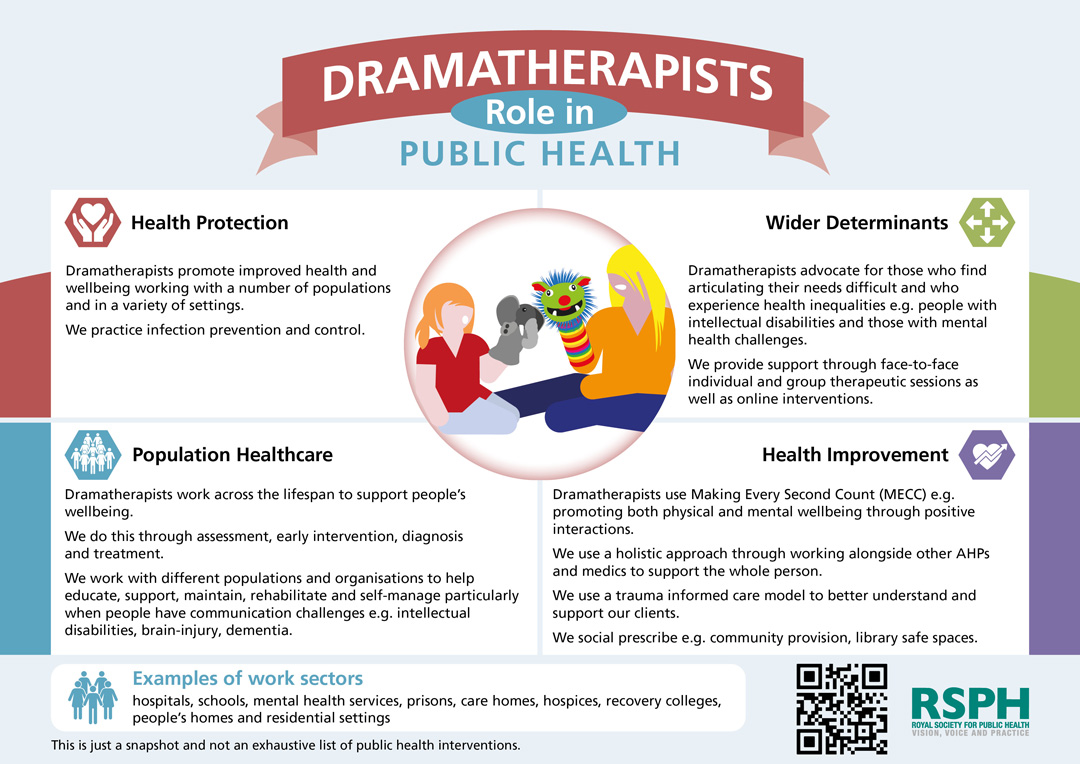Dramatherapy - Profession specific descriptor for registered professionals
Dramatherapists work across a wide range of settings, using a non-direct psychological approach and at times, non-verbal to support people to communicate, make change, and improve mental and physical well-being. Although any population can benefit from dramatherapy interventions it can be particularly beneficial when working with people who have psychosis, Autism, learning disabilities, dementia, physical/sexual abuse, PTSD and mental illness.
Dramatherapists are both clinicians and artists, who draw on their knowledge of theatre and therapy to use as mediums for psychological therapy. Dramatherapists can be found in many varying settings such as schools, in-patient, community mental health teams, social care, secure care, prisons, and the voluntary sector where they can influence the health and wellbeing of individuals, carers and their teams. Dramatherapists have a range of transferrable skills that can be activated in leadership roles, public health, and research.

